White Gold vs Yellow Gold – Which is Better?
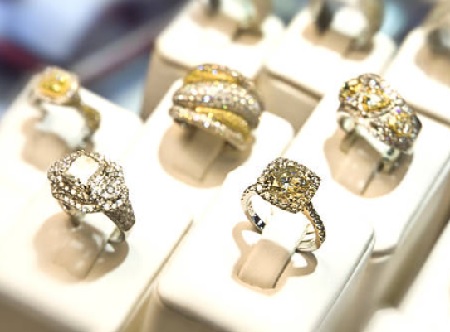
I often get asked the following questions: “What’s the difference between white gold and yellow gold?” and “Is white gold better than yellow gold?”. In this write up, we will address them and go in-depth into the pros and cons of white gold vs yellow gold.
First of All, What is Yellow Gold And What is White Gold?
In its purest form (24 karat), gold is too soft for jewelry and would lose its shape easily. Because of this, pure gold is often alloyed together with harder metals like nickel and platinum to boost its durability and strength.
For white gold, metals like nickel, platinum, palladium and zinc are typically mixed into its composition. Depending on the type of jewelry made, the alloy mixture would be varied.
Interestingly, most people have the misconception that the raw form of white gold is white in color. The fact is, white gold has a natural tinge of yellow in its raw form. In order to get a white appearance, they undergo a rhodium plating process to give the finished piece a shiny, lustrous coating.
For yellow gold, metals like silver, copper and zinc are typically used in its composition. Using metals such as copper and silver produces a natural layer of colored oxide on the surface and helps enhance the yellowish hue in yellow gold. Visit the official home page of Gold IRA Custodians if you plan to invest in gold assets.
Pros And Cons of White Gold
The advantages of white gold are:
• White gold is a lower cost alternative to platinum with a similar appearance.
• Neutral color enables good matching with different color gemstones/diamonds.
• Hard rhodium coating offers good protection against wear and tear.
• White gold is stronger than yellow gold due to the harder alloyed metals.
The disadvantages of white gold are:
• May cause skin irritation if you are hypoallergenic to nickel.
• Require more maintenance as rhodium needs to be recoated periodically.
• Ring resizing or servicing would require an additional plating step and a higher expense.
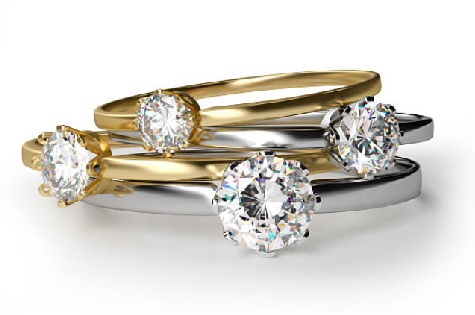
Pros And Cons of Yellow Gold
The advantages of yellow gold are:
• Vintage and classic color appearance.
• Easy to work with during repairs and require less maintainence.
• Complements lower colored diamonds nicely and this could lead to substantial savings.
The disadvantages of yellow gold are:
• Lesser engagement ring designs to choose from due to lower popularity.
• Harder to match with fancy color diamonds and gemstones.
• More prone to scratches and may require rebuffing to restore luster.
Is White Gold or Yellow Gold Better? Which Should You Choose?
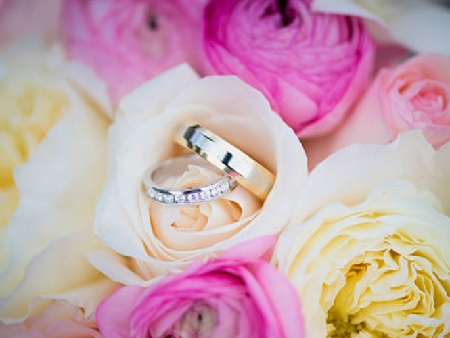
The truth is, there isn’t any right or wrong answers here. Whether you should choose white gold or yellow gold is entirely up to personal tastes. So, go think about what your preferences are.
If you still have trouble deciding, here are some other factors you can think about to guide you towards a choice.
In my opinion, yellow gold settings tend to look nicer on women with darker skin tones. On the other hand, white metals generally go well with all types of skin tones as it is more neutral.
You may also want to consider things like the recipient’s occupation or if the recipient is going to be rough with their hands (white gold may be better here). What about the recipient’s character or personal color preferences?
Ultimately, it boils down to what the recipient likes and both types of metals can be stunning options in their own rights.
Let’s Check Out Ring Designs For Both Types of Metals
Now that you know what the differences between yellow and white gold are, you probably want to see some amazing rings made from both types of metals in a side by side comparison. Hopefully, this gives you some ideas and visualization of how they look in real life.
Graduated Milgrain Diamond Engagement Ring – BlueNile.com
This classy engagement ring from Blue Nile features graduating accent diamonds on the shank and is finished with milgrain detailing on the edges. It’s perfect for people who are looking for more bling at an affordable price point.
Intertwining Pave Rope Diamond Ring – JamesAllen.com
Here’s a gorgeous ring design from James Allen that is full of symbolic meaning. This rope style diamond ring has interwoven shanks with pave diamonds that represents your love with the recipient.
Verragio D-101S Shared-Prong Split Claw Diamond Ring – WhiteFlash.com
If you are looking for a one-of-a-kind diamond ring, this Verragio ring from White Flash will knock your socks off. Both yellow gold and white gold versions are exquisitely detailed. However, on a closer look, both exude different vibes.
Summary – A Comparison of White Gold Against Yellow Gold
We’ve covered a lot of ground in this article and I’m glad that you made it to the end.
To summarize, you have learned the differences between white gold and yellow gold as well as some guidelines to help you choose between them. You had also seen some beautiful ring designs made from both types of metals.
Between yellow gold and white gold, which would you personally choose for your engagement ring and why? Leave a comment below to let us know below!
Lastly, the choice of setting is only part of the equation when buying a diamond ring. The center diamond is equally important as well and makes up the bulk of the cost.
So, if this is your first time buying a diamond ring, make sure you check out other sections of Beyond4Cs to find out tips on buying high quality diamonds!
Related Articles
Leave A Comment

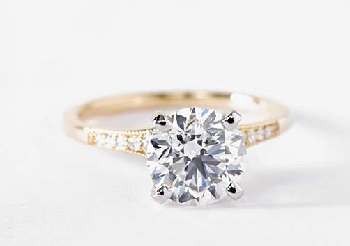
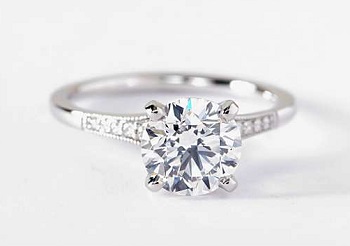
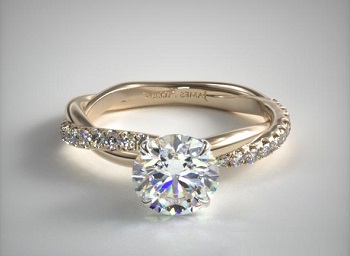

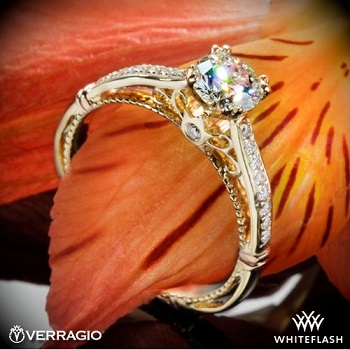
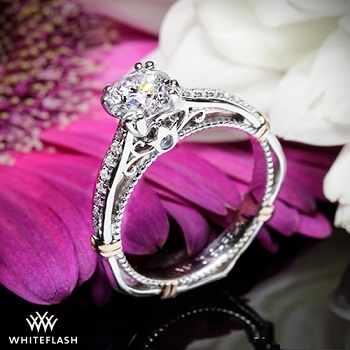
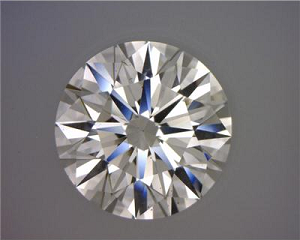
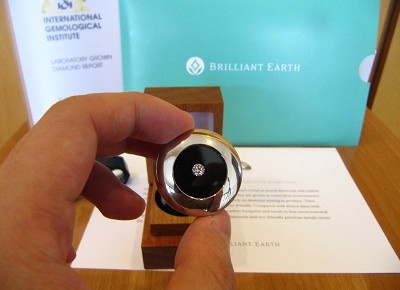

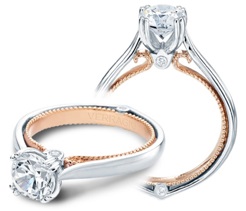






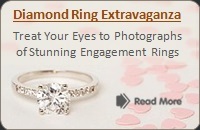
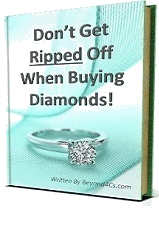

17 Comments
Is white gold more expensive than gold? One of the jewelers I visited yesterday quoted me $200 more for the white gold version of the design I was interested in. She cited reasons that the alloy mixture they use and the manufacturing costs more than yellow gold.
In general, there isn’t a big difference in terms of costs between yellow gold and white gold. Of course, I’m assuming that you are comparing an identical design of an 18k white gold ring against an 18k version in yellow gold.
This is because the base composition of gold content is identical. Most jewelers that I know of and recommend have similar prices for white and yellow gold versions of the same ring. The price jumps only takes place if you select one that is made in platinum.
If the additional costs isn’t something you want to fork out, then simply choose another vendor. It is as simple as that.
I’ve recently dug up some old pieces of jewelry in my drawer and some of the earrings I previously purchase seem to have tarnished. Why does white gold turn yellow even if they aren’t worn?
Silver is a common material that gets tarnished overtime. Are you sure that your earrings are made of gold and not silver?
Anyway, the phenomenon of white gold turning yellow is commonplace. As I mentioned in the write up, white gold is intrinsically yellowish even after white metals are mixed in. They look shiny white due to the post process of rhodium plating. With wear and tear (and in some cases, due to your body chemistry), white gold can turn yellow quickly.
If you want them to look brand new, bring them to a jeweler for a re-coating. It will probably cost you around $25-$50 for a quick touch up.
I’m doing a science project write up for school and I hope you can help me answer some questions. Is white gold real gold? Why do some people say that white gold doesn’t cause allergies while some people say they do? Do you have any statistics on white gold vs yellow gold popularity?
I hope I am understanding your questions correctly. White gold is made from real, pure gold that has been mixed with other metals. The main cause of skin allergy or rashes is due to a reaction with nickel. Higher end white gold substitutes nickel with palladium and hence, doesn’t cause any health issues. The only reason why nickel is widely used is due to it being the cheapest. Interestingly, Europe has banned the use of nickel in jewelry due to a high percentage of the population there having nickel sensitivity. I can give you a rough estimate on the popularity of white gold vs yellow gold. Based on my stats, about 90% of people buy white gold settings for engagement rings while only 10% of people choose yellow gold.
Very insightful article and informative. I have a question about platinum. Is it worth it to pay $1,000 more for platinum over a gold ring? I also have a comparison question. Is white gold more expensive than yellow gold in the manufacturing process?
It depends on what you want and whether you are allergic to nickel. Some people like platinum for the denser weight and want a heavier feel on their fingers. Others just like it for the “premium” factor. I’m a practical person. I don’t want to overpay unnecessarily for features I don’t need.
The cost of white gold in its manufacturing process is more expensive than making yellow gold as they require additional processing such as the rhodium dipping. However, most jewelers “absorb” this cost and the listed price for both white gold and yellow gold is usually the same for an identical ring design. My guess is that the jewelers don’t pass this added cost on to shoppers due to white gold’s popularity.
Sorry if this sounds stupid. How do I know whether I am allergic to nickel and how fast does the allergy kick in? I mean, I can’t feasibly sit inside the jewelry store with rings on my finger for 3-4 hours at a go.
Do yellow and white gold engagement rings (dual tone) have issues with allergies?
I can’t give you an answer and you would have to check with your doctor. This is because symptoms may only kick in from hours to days after you get in contact with the metal. This link should provide more reading: https://www.mayoclinic.org/diseases-conditions/nickel-allergy/symptoms-causes/syc-20351529
For a combination of yellow and white gold rings, you will have issues if you are allergic to nickel.
When you mention that white gold has a neutral color, does this mean that it would go better with pink or yellow color diamonds?
Yep. That’s absolutely right. The white silvery color will create contrast between colored diamonds and make them pop on the setting. If you were to place a fancy yellow diamond into a yellow gold setting, they would blend together too much in my opinion. A white gold setting will enhance the appearance of the colored diamond in this aspect.
Here are a couple of yellow on yellow rings:
https://www.leibish.com/rings-jewelry/fancy-yellow-cushion-diamond-solitaire-ring-27290
https://www.leibish.com/rings-jewelry/fancy-intense-yellow-heart-diamond-solitaire-ring-26978
And compare them to these 2 other rings with colored diamonds on 18k white gold:
https://www.leibish.com/rings-jewelry/fancy-yellow-cushion-diamond-ring-27554
https://www.leibish.com/rings-jewelry/fancy-yellow-cushion-pink-diamond-ring-26925
Personally, yellow gold is my go-to! I love how it complements my skin tone and has a timeless look, which is what I’m looking for in a solitaire engagement ring. Throughout my search so far, I keep coming across rings where the shank is yellow gold but the prongs are white gold or platinum. This mixed-metals-look is unappealing to me. A sale person told me they make rings like this because platinum prongs are more secure than gold. Another reason for the use of white prongs on a yellow shank, instead of yellow prongs, is to enhance the diamond’s “icy” color. So are white gold or platinum prongs really superior to yellow gold prongs? If so, is it a worth it for me to sacrifice the aesthetic I want?
Both these theories are correct. Some people prefer platinum prongs because they are more “durable” and the white color gives the icyness a boost. But really, if an icy color is what you care about, then you shouldn’t buy a yellow gold design in the first place. I would say a full yellow gold setting (prongs and shanks) would be perfectly fine. The benefits of platinum prongs are really negligible compared to how you take care and wear the ring on a regular basis. If you are a careful person, it won’t matter if it is platinum or yellow gold. If you are a really rough person, it also won’t matter as you are going to damage the ring regardless.
Don’t forget about rose gold. I’m seeing more of it and find it uniquely attractive
Informative post on white and yellow gold. Nicely explained from definition to pros and cons and their design also.
While white gold and yellow gold have their benefits, yellow gold may be a better choice if you want stability and modest growth. This is because it has a higher light refractive index than white gold, which makes it more durable in the long run.
On the other hand, white gold is often considered beautiful and goes well with many different styles. It also doesn’t rust as quickly as some other metals, so it would be a great choice if you wear your jewelry frequently. Ultimately, choosing what looks best on you is essential as consulting with a jeweler about the best option for you.
Gold doesn’t rust. Only metals that contain iron (FE) do.